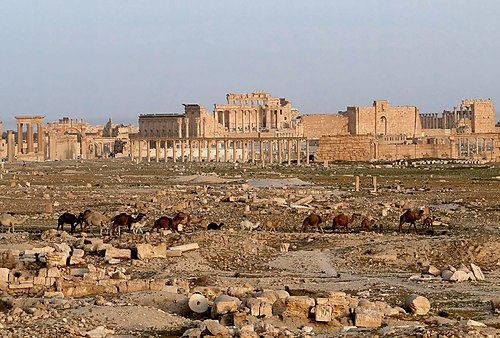 The Wikipedia article of the day for March 2, 2020 is Palmyra.
The Wikipedia article of the day for March 2, 2020 is Palmyra.Palmyra is an ancient city in present-day Homs Governorate, Syria. Inhabited since the Neolithic period, it entered recorded history in the early second millennium BC. Palmyra became part of the Roman Empire in the first century AD. Palmyrene merchants established colonies along the Silk Road and the city grew wealthy from trade caravans. Many monumental projects were erected, such as the Great Colonnade, the Temple of Bel, and distinctive tower tombs. Palmyra reached the apex of its power in the 260s, when its king Odaenathus defeated the Persian emperor Shapur I. After Odaenathus's assassination in 267, his widow Zenobia rebelled against Rome and conquered the Roman East. Palmyra was destroyed in 273 by the Roman emperor Aurelian. Restored on a smaller scale, it remained a minor trading center until it was sacked by the Timurids in 1400 and became a small village. During the Syrian civil war in 2015, the Islamic State of Iraq and the Levant destroyed large parts of the ancient city.